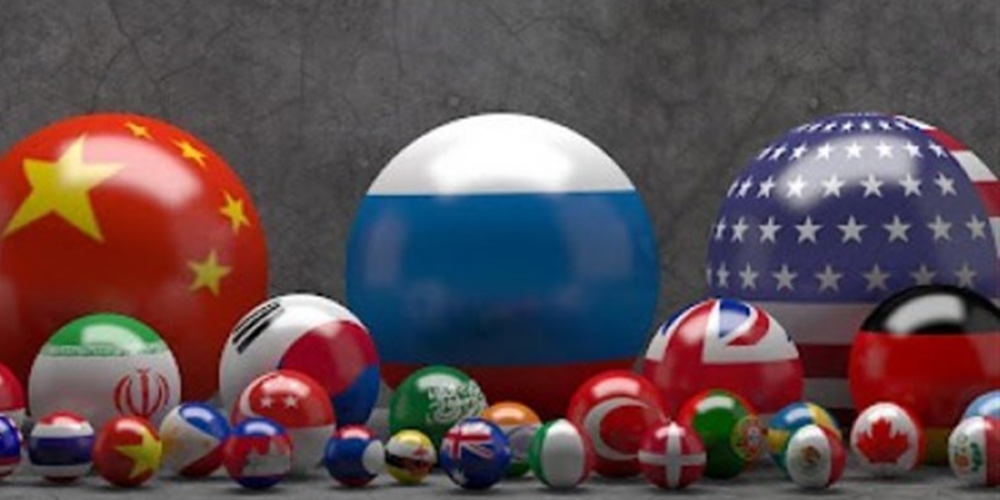A current fashion within the left is the championing of multipolarity. It assumes a bloc of states in different countries, some with more mixed economies than others, as objectively “anti-imperialist” insofar as they present a threat to the American hegemon.
Some of this interpretation is jaundiced, especially when one considers the equally compelling narrative that such states, after recent decades of rapid, sometimes primitive accumulation internally, are now in a position to recycle surplus capital abroad in a way that advances their geopolitical interests. Indeed a Marxist analysis of the situation might ask what is the character of some of these states, whose interests do they represent internally within their own societies, what is the class structure of those societies, who controls the economic surplus, how is it distributed, and so on.
Most of this is ignored, and unfortunately so. If such care was taken we might see the situation less as some global anti-colonial struggle with Yankee imperialism and something closer—if not quite exact—to the decades preceding the First World War, indeed with its own scramble for Africa being replicated.
Yet if the multipolarity leftists overlook much in their political analysis, the same is true of their economics. This is most notable in claims about de-dollarisation. The BRICS are understandably resentful of dollar dominance. Trade wars and economic sanctions have encouraged Russia and China to push de-dollarisation.
At present the dollar, for the foreseeable future, remains the world’s most effective reserve currency. It is accepted globally for trade, investment, and servicing foreign debt. Dollars serve as the de facto central bank reserve across the world, thereby bolstering respective domestic currencies.
The BRICS have given signals that they are thinking about a BRICS currency for internal trade. That would enable them to avoid clearing transactions in US dollars. The question is, Would this work, and would it make much difference?
Much depends on China. China’s goal is the internationalisation of the yuan, a strategy that has hitherto proved unsuccessful, because most countries have no use for yuan. As indicated previously in Socialist Voice (“Dollar dominance,” June 2023), the Chinese financial system is completely different from the American. It does not offer foreign holders of the currency the same benefits that holders of dollars get, and cannot, unless there is major structural and political change in China.
Ultimately, no BRICS country will give up its sovereign money to use yuan. In any case, to trade in yuan and not the dollar while limiting US influence would simply increase China’s control over their economies (hardly the stuff of anti-imperialism). If you are a multipolarity advocate this might not be too bad: as one rose-tinted Socialist Voice article recently claimed, China has expanded “without the use of military expansionism—a strategy that has avoided bloodshed, and therefore done without antagonising whole populations” (“A transformative period,” Socialist Voice, July 2023).
That might be news to our Vietnamese comrades. Indeed it might be news to our African readers, who’ll no doubt know that when the terms of credit on those “developmental loans“ for infrastructure aren’t made, the Chinese banks quickly acquire the property rights of various airports, ports, and railway lines—as they have already done in several cases (see, for example, Wale Ajetunmobi, African Liberty, 10 September 2018*). To be sure, China is no “Great Satan”; but let’s give it a few more decades of monopoly-finance-capital export abroad (as opposed to a decade or so, coming, as it is, from such a low base) and we’ll see if the PLA fighter jets aren’t out, or coups aren’t engineered to defend Chinese global oil and gas interests.
Of course those Chinese military bases in Africa might already give a sense of where the trajectory lies. Perhaps before parading quotations from Xi Jinping in future (Socialist Voice, April 2023) we might remember Karl Marx, who said that materialists “distinguish . . . the phrases and fancies of parties from their real interests, their conception of themselves, from their reality.”
Returning to the BRICS, assume one has a BRICS currency for settling internal trade, where each participant country keeps its own money; that presents significant problems. Assume the currency is backed by gold; it is likely that many of the BRICS do not have sufficient gold reserves to do this meaningfully. We know from the EU that monetary union without fiscal union cannot hold.
A BRICS euro would also confront similar problems to the Chinese yuan in terms of usability. When a country exports goods or services to another outside their currency zone they receive US dollars in return. As indicated above, the dollar is highly flexible. It can pay for imports throughout the global marketplace; it is (for now) perceived as safe from long-term fluctuations or devaluations; it can service foreign debt.
A BRICS currency could do none of these things. Unlike the dollar, it would not make an effective global reserve currency, because it lacks convertibility and possesses limited usability. At best it will operate at the margins, and does not herald a new transformative period in global geo-politics.
*Wale Ajetunmobi, “Like Zambia, Sri Lanka also handed over port to China to pay off debt” African Liberty, 10 September 2018 (https://tinyurl.com/uvva6n33)






